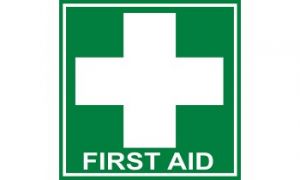

Here’s a cheat sheet for Quality Area 6: Collaborative Partnerships with Families and Communities from the NQS. This cheat sheet includes each standard, its elements, and practical examples tailored for early childhood settings.
Here's a practical Quality Area 5 Cheat Sheet that includes key standards, element breakdowns, and real-world examples that reflect emotionally intelligent, trauma-informed, and child-centered practice. This area focuses on building secure, respectful, and reciprocal relationships that support children’s wellbeing, belonging, and development.
Here's a breakdown of Exceeding Theme 3: Meaningful Engagement with Families and/or the Community across Quality Areas 1 to 7, tailored to your advocacy lens. This theme is all about co-constructing practice with families and communities—ensuring their voices shape decisions, environments, and outcomes.
Here's a comprehensive breakdown of Exceeding Theme 2:Practice is Informed by Critical Reflection across all quality areas 1 to 7 of the National Quality Standard (NQS). This theme emphasizes how services use deep, ongoing reflection to inform and improve their practices—not just occasionally, but as a core part of their culture.
Here's a quick cheat sheet for Quality Area 4: Staffing Arrangements under the National Quality Standard (NQS) in Australian early childhood education. This area focuses on ensuring that staffing promotes children's learning and development.
The following is a cheat sheet for Quality Area 3: Physical Environment. This quality area is designed to support educators in creating safe, inclusive, and engaging spaces that nurture well-being and learning. This version emphasizes design principles, sustainability, and trauma-informed spatial choices, with cues for induction, audit prep, and daily reflection.
The following is a cheat sheet for Quality Area 2. Quality Area 2 of the National Quality Standard (NQS) is the heartbeat of safe, responsive, and nurturing early childhood environments. It affirms that every child has the right to feel safe, be healthy, and thrive—physically, emotionally, and developmentally.
Quality Area 3 of the National Quality Standard (NQS) focuses on the physical environment—its design, safety, inclusivity, and how it supports children’s learning, wellbeing, and agency. Here’s a breakdown of practical, workplace-ready examples tailored to your advocacy and leadership lens.
The following is a concise yet powerful cheat sheet for Quality Area 1: Educational Program and Practice, tailored for your advocacy and sector leadership lens. This distills the core elements, documentation strategies, and reflective prompts to support both compliance and authentic pedagogy.
Quality Area 1 of the National Quality Standard focuses on Educational Program and Practice, ensuring that learning experiences are child-centered, stimulating, and engaging. Here are some practical examples of how this can be implemented in the workplace.
 As an Educator in Australia, your pay rate falls under the Children’s Services Award 2010. This award states the minimum amount that an employer can… Read More
As an Educator in Australia, your pay rate falls under the Children’s Services Award 2010. This award states the minimum amount that an employer can… Read More
 When working as a qualified Early Childhood Teacher (with a university degree) within a service, your rate of pay will come from the Educational Services… Read More
When working as a qualified Early Childhood Teacher (with a university degree) within a service, your rate of pay will come from the Educational Services… Read More
 When working as a Diploma Qualified Educator your pay rate is from the Children's Services Award 2010. This Award states your minimum rate of pay… Read More
When working as a Diploma Qualified Educator your pay rate is from the Children's Services Award 2010. This Award states your minimum rate of pay… Read More
 When working as a Cert 3 Qualified Educator, your pay rate is from the Children's Services Award 2010. This Award states your minimum rate of… Read More
When working as a Cert 3 Qualified Educator, your pay rate is from the Children's Services Award 2010. This Award states your minimum rate of… Read More
 Educational Leaders play a crucial role in their early childhood service by ensuring that the educational program aligns with best practices and supports the holistic… Read More
Educational Leaders play a crucial role in their early childhood service by ensuring that the educational program aligns with best practices and supports the holistic… Read More
 In early childhood education and care, ratios are more than a technicality—they are a frontline safeguard. Every child deserves responsive supervision, emotional connection, and developmental… Read More
In early childhood education and care, ratios are more than a technicality—they are a frontline safeguard. Every child deserves responsive supervision, emotional connection, and developmental… Read More
 Here’s a comprehensive Mobile Phone and Smart Watch Policy tailored for early childhood education and care (ECEC) services in Australia, aligned with the latest 2025… Read More
Here’s a comprehensive Mobile Phone and Smart Watch Policy tailored for early childhood education and care (ECEC) services in Australia, aligned with the latest 2025… Read More
 With the new national child safety reforms kicking in on 1 September 2025, early childhood services like yours have a real opportunity to lead the… Read More
With the new national child safety reforms kicking in on 1 September 2025, early childhood services like yours have a real opportunity to lead the… Read More
 The Sea of Fish Challenge is a national initiative that invites children, educators, families, and communities to create and display fish artworks as a symbol… Read More
The Sea of Fish Challenge is a national initiative that invites children, educators, families, and communities to create and display fish artworks as a symbol… Read More
 Across the early childhood education and care sector, educators are sounding the alarm: current staffing ratios are insufficient to deliver safe, meaningful, and developmentally appropriate… Read More
Across the early childhood education and care sector, educators are sounding the alarm: current staffing ratios are insufficient to deliver safe, meaningful, and developmentally appropriate… Read More

Firstly you need to think about whether you want to become a Director. Just because...
See more...
As CCTV becomes a more common feature in Australian early learning centres, especially in response...
See more...
According to the National Regulations, there are mandatory requirements for first aid qualified educators to...
See more...© 2009-2025 Aussie Childcare Network Pty Ltd. All Rights Reserved.

